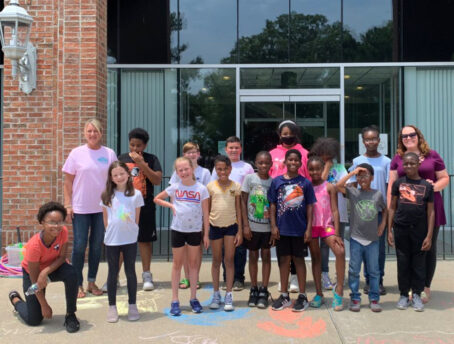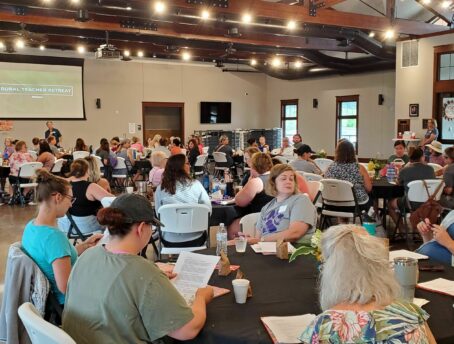Southeast
Our Southeast Hub is led by the East Carolina University Rural Education Institute.
Our Southeast Hub partners at the East Carolina University Rural Education Institute offer a state-wide network of exemplary rural-focused programming aimed at creating equitable, empowered, and thriving rural school ecosystems. Dr. Kristen Cuthrell, Director of the Rural Education Institute, serves as the hub contact for this region.
Located in Greenville, North Carolina, East Carolina University (ECU) was founded as a teacher training institute, and has served the rural communities in the region ever since. Over time, ECU grew to be a leading voice for rural education across the state through their Rural Education Institute (REI). Now, through this new partnership with Rural Schools Collaborative, the REI team and Rural Schools Collaborative work together to elevate the voices of rural educators in North and South Carolina as the Southeast Hub.
The Rural Education Institute is an easily accessible and engaging collaborator with local education stakeholders. By providing a space for rural education voices, perspectives, and innovations to thrive, that REI and its local partners can together strengthen the educational outcomes of rural students, schools, and communities. With those stakeholders, the Rural Education Institute works locally in four primary ways:
ECU Next Gen: a teacher pathway program that seeks to cultivate the next generation of rural educators and researchers.
Local and Regional Development: building the capacity of rural places by collaborating with schools and communities.
Rural Education Promotion: articulating and advocating the importance of rural schools and communities.
Research and Evaluation: studying investigating what works in rural schools.
To learn more about the work of Dr. Cuthrell and her team at East Carolina University’s Rural Education Institute, explore below.
Teaching CARE Corps - My Rural Service Story
Teacher Profile

Tiffany Phillips
How rural educators become community leaders.
Many rural residents strive to create a positive impact in their community, empowering the next generation of local leadership. To this aim, a lot of folks discover teaching as the avenue to do just that. Tiffany Phillips is entering her eighth year of teaching at G.R. Whitfield, a K-8 school in Grimesland, NC. A North Carolina Teacher of the Year, Tiffany shared with us about her choice to become a teacher, and how her role fits into the greater community.
Read MoreMore news and stories from our Southeast Hub:

Three New Intermediaries Join the GRAD Partnership and Rural Schools Collaborative’s Rural Cohort
RSC’s Regional Hubs in Arizona, Missouri Ozarks, and the Southeast will become Grad Partnership Intermediaries and join the project starting this fall.

Making Summer Learning Fun in Eastern North Carolina
A partnership between East Carolina University, North Carolina State University, and local partners is growing fun and educational summer programming in rural North Carolina.

Announcing the 2023-2024 Catalyst Initiative Grant Recipients!
Congratulations to our five newest Rural Teacher Corps partners.

Recruiting Teachers With Affordable Housing in North Carolina
Teacher Housing Complex coming to Bertie County
